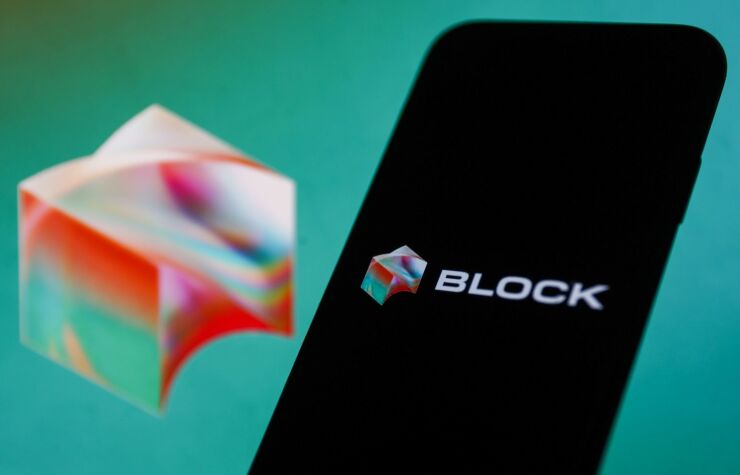
Two years after shelling out $29 billion to buy Australian buy now/pay later lender Afterpay, Block is accelerating its strategy to connect the unit to different parts of the company.
"[Afterpay] is where a lot of my focus is now," said Jack Dorsey, Block's CEO, during the payment company's earnings call on Thursday. "We're meeting with their team on an almost day to day basis."
For the quarter ending June 30,
Block reported adjusted earnings before interest, taxes, depreciation and amortization of $384 million, better than the $297 million analysts projected. Block expects to earn $1.5 billion in adjusted EBITDA in 2023. Analysts' expectations are for full-year EBITDA of $1.36 billion.
"Seller gross payment volume is accelerating," said Jeffries analysts in a research note, suggesting the total monetary value of Block's transactions across its business lines could boost Block's full year performance.
One of Block's overriding strategies is what Dorsey called an "ecosystem of ecosystems," or improving how the company's different business units interact with each other to collaborate and inform decisions on future product development. Melding Afterpay into Block's ecosystem is a large part of that strategy.
Block's
Afterpay also gives Block an opportunity to expand the products it offers to both consumers and merchants by pairing Afterpay with Cash App, which supports both audiences.
Cash App, which additionally powers Block's cryptocurrency trading product, had about $62 billion of inflows during the second quarter, up from $49 billion the prior year. Block will analyze usage of both Afterpay and Cash App and will develop marketing and other engagement options that will be accessible via both products in an integrated manner. Cash App has served as a springboard for products such as Cash App Pay, Cash App for Business and others.
"A lot of the work we're doing has to do with the matching items and merchants and deals in a relevant way," Dorsey said. "We're using machine learning and deep learning to do that."
Block has made artificial intelligence a part of its strategy for years and plans to ramp up its use in the year ahead. In Block's first quarter
"We're looking at how to build a compelling experience for consumers that gets them to go back daily to find offers, deals and merchants," Dorsey said on Thursday.
Afterpay also has larger clients, such as Urban Outfitters, Target, Amazon, Kroger and CVS. This can fit into Block's strategy to sell to larger merchants. During Thursday's earnings call, Dorsey said Block is training sales staff to reach stores like those.
Block's recent growth is partly due to its introduction of Tap to Pay for Android in the U.K., according to Zacks. Block also supports Android Tap to Pay in the U.S. and Apple's Tap to Pay. Tap to Pay, or softPOS, enables merchants to use smartphones to accept payments, without requiring add-on hardware.
Block's online channels, such as Square Online, Invoices, Virtual Terminal and eCommerce API, are also providing a boost to the company's revenue, particularly in card-not-present payments, according to Zacks. Headwinds are coming from marketing costs and personnel, Zacks said. During the earnings call, Dorsey said Block will scale back on hiring, and Block reported it has cut expenses by closing several west coast offices.
"We have also pulled back on advertising in more experimental channels in favor of proven venues," Dorsey said.
Lingering effects of inflation could also create challenges. While the major card networks have not reported a major hit to their earnings due to inflation, Block's exposure to small business could be a concern.
"An increase in costs is a big deal for small merchants, and that's a large part of Block's business," said Daniel Keyes, a senior analyst at Javelin Strategy & Research. "These impacts can add up for Block."






